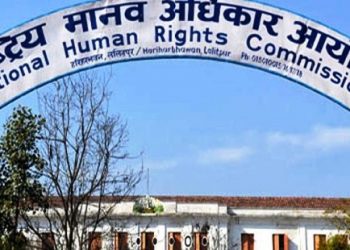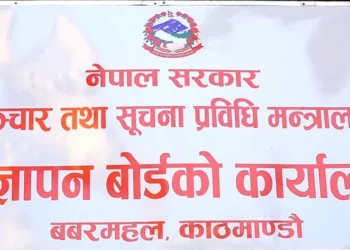KATHMANDU: The overall cash in Nepali banks and financial institutions (BFIs) is falling short to meet the needs of an expanding market as BFIs tend to struggle to disburse (time and again) adequate loans in the growing market.
In the second quarter of the current fiscal 2021/22, investable cash (liquidity) in BFIs was such scarce that they were not in a position to approve new loans. The situation persisted since the first quarter of 2021/22.
As banks were beleaguered with a liquidity crisis in the first quarter itself, the Central Bank, Nepal Rastra Bank (NRB), and the government provided the BFIs a little room to breathe.
NRB tightened its grip on imports – making it mandatory for importers to maintain 100 percent cash margin in banks before applying for Letter of Credit (LC) to place the orders – while also putting to use other relevant measures, and the government also allowed BFIs to consider up to 80 percent of local levels reserves as deposits.
These measures eased the liquidity problem for a while but unsurprisingly the crisis has once again surfaced at the start of the third quarter.
There was merely Rs 10 billion in the country’s financial system until the third week of December 2021. In addition, Nepal Oli Corporation paid Rs 13 billion to Indian Oil Corporation last week (last week of January) and a chunk of deposits was also withdrawn for paying taxes in the following week.
The economy is again treading along a rough patch of liquidity crisis as BFIs find themselves more cash-strapped.
As the Central Bank allows short-term inter-bank lending at a fixed interest rate to relieve BFIs to some extent to carry on their operations, banks are already taking advantage of this provision working with each other at nearly 5 percent inter-banking lending rate — with little to make.
Amid all the turmoil, there are also a few reasons to be optimistic about the economy.
The political sphere seemed to have developed an understanding to hold local-level elections in the coming months. The elections are likely to stir the financial system both formally and informally. The expenditure of the government is certain to increase in course of elections, as political parties also tend to mobilize funds for election expenses.
NRB’s recent intervention on imports has also shown positive signs of addressing the liquidity crisis. Data showed last week that the import of selected goods declined by around Rs 2 billion due to NRB’s cash margin policy. The Central Bank adopted the policy as foreign exchange reserves were depleting in the country in the face of surging imports.
A crackdown on illegal financial systems in place inside the country also provides little room for cash flow in the system. The steady decline of remittances is also attributed to the growing attraction towards cryptocurrency trading and illegal ‘money order transactions’ known as ‘hundi’.
The Central Bank has also been dissuading the public from opting for illegal crypto trading and hundi transactions as punitive measures are also in place aimed at eliminating such illegal endeavors.









Comment